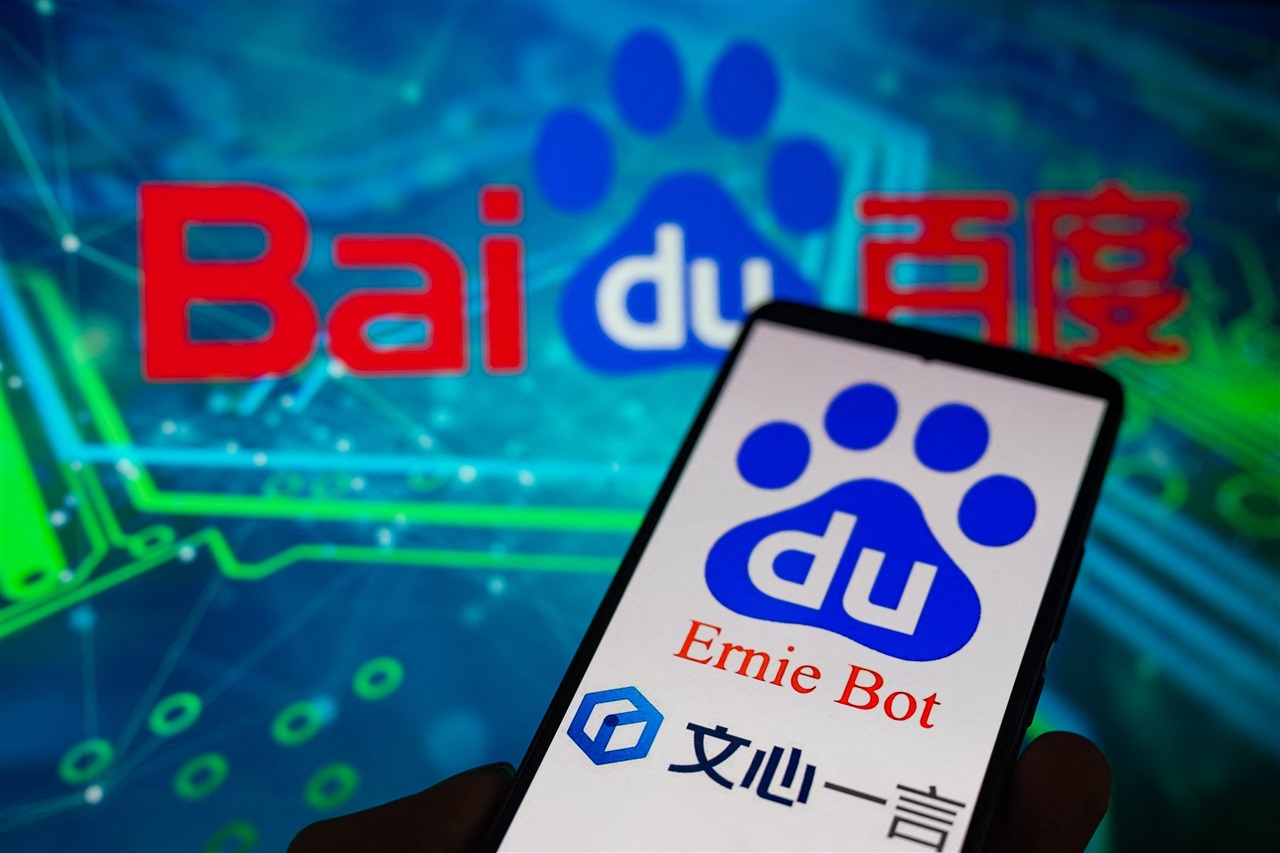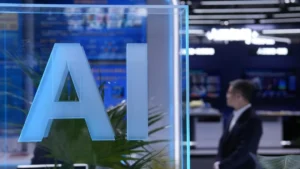Hong Kong – The artificial intelligence race has entered a new phase as two of the world’s leading AI developers, Baidu and OpenAI, have announced that their chatbot services will now be available free of charge. This move comes as Chinese startup DeepSeek rapidly gains ground with its cutting-edge models, threatening to reshape the AI landscape and forcing industry leaders to rethink their strategies.
Baidu, a dominant player in China’s AI sector, confirmed through a WeChat post on Thursday that its AI chatbot, Ernie Bot, will become free for all users on both desktop and mobile platforms starting April 1. The company emphasized that Ernie Bot’s premium features, including AI-generated artwork and enhanced reasoning capabilities, would also be accessible without any cost. This strategic decision is seen as an aggressive response to DeepSeek’s rapid rise, which has put established companies under immense pressure to adapt.
In a strikingly synchronized announcement, OpenAI CEO Sam Altman revealed on X (formerly Twitter) that ChatGPT’s newest model, GPT-5, will also be available free of charge. He stated that all ChatGPT users would have unlimited access to GPT-5, though paid subscribers would still enjoy enhanced intelligence and additional features. This decision signals OpenAI’s intent to maintain dominance in the AI sector amid increasing global competition.
Baidu followed up with a statement on Friday, revealing that it plans to launch the next iteration of its AI model by June. In an unexpected move, the company confirmed that this upcoming version would be open-source, a shift mirroring DeepSeek’s approach. Furthermore, Baidu announced that Ernie Bot’s Deep Search function—an advanced feature designed to deliver expert-level responses with improved reasoning—would also be released for free in April.
The AI industry is experiencing a seismic shift, particularly in China, where DeepSeek’s latest R1 model has disrupted the market by delivering performance comparable to major American AI firms at a fraction of the cost. The Chinese startup’s groundbreaking model has not only attracted global attention but has also intensified competition among domestic AI developers, forcing tech giants like Baidu to rethink their monetization strategies.
Investor enthusiasm for Baidu’s response to the AI battle was evident, with the company’s Hong Kong-listed stock surging by 12% on Thursday. By Friday, shares were trading at approximately 95 Hong Kong dollars ($12.20), contributing significantly to the 20% rise of the Hang Seng China Enterprises Index since the beginning of the year.
Baidu’s early entrance into China’s AI race was spurred by the debut of OpenAI’s ChatGPT in late 2022, which prompted Chinese tech firms to develop their own alternatives. Within four months, Baidu introduced Ernie Bot, ahead of domestic competitors such as Tencent and Alibaba. However, the company has struggled to maintain its lead, as ByteDance’s Doubao has gained traction, surpassing Ernie Bot in active user engagement.
Meanwhile, Alibaba has further solidified its presence in the AI sector. The company revealed that Apple had chosen Alibaba’s AI services for integration into the Chinese market after evaluating multiple AI firms, including Baidu. This selection by Apple serves as a testament to Alibaba’s growing influence in AI technology.
China’s AI industry has seen a wave of emerging players challenging the dominance of traditional tech giants. Startups such as Moonshot AI and Zhipu AI have risen to prominence, attracting investments and gaining recognition for their impressive AI models. Moonshot AI’s chatbot, Kimi, has quickly climbed the ranks, becoming the third-most visited AI chatbot in China after DeepSeek and Doubao.
Zhipu AI, an AI company originating from Tsinghua University, has also drawn significant attention. Backed by Tencent and Alibaba, the company has strong governmental ties. However, its progress has faced scrutiny, as the U.S. Commerce Department recently added Zhipu to its “Entity List,” citing concerns over its alleged connections to the Chinese military. Zhipu has firmly denied these allegations.
The global AI sector has witnessed a growing trend where major language models, including OpenAI’s ChatGPT and Anthropic’s Claude, have opted to provide basic chatbot services for free while monetizing premium features. OpenAI initially launched ChatGPT without charge before introducing a paid subscription model. Baidu also implemented a similar strategy in 2023 by offering premium AI services, including a text-to-image generator, at a monthly fee of up to 59.9 yuan ($8.20). By November 2024, Ernie Bot had amassed 430 million users, underscoring its strong presence in the market.
As AI competition escalates, Baidu and OpenAI’s latest announcements signal a crucial turning point. The battle for AI supremacy is set to reshape the industry, with accessibility and innovation driving the next phase of development.











